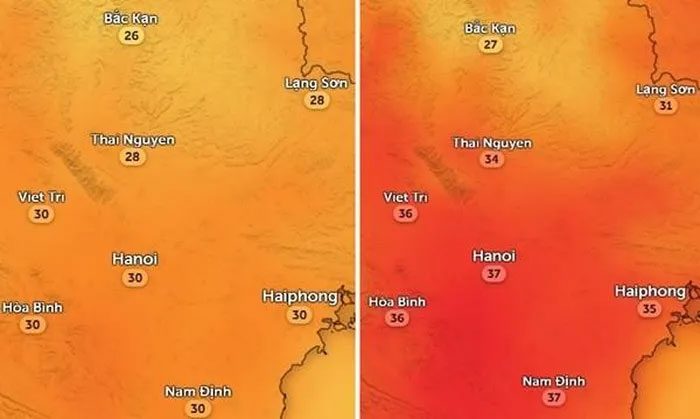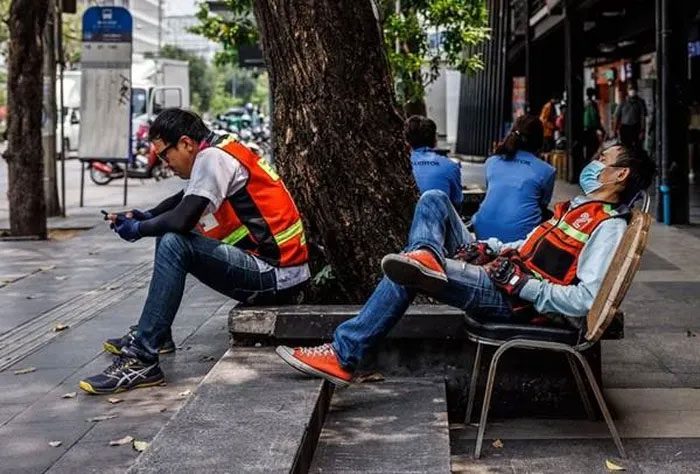The weather in Northern Vietnam is currently hot and humid, and the high humidity causes the perceived temperature outdoors to feel higher than the actual air temperature, meaning people feel hotter. However, in the winter, high humidity in the North creates a sensation of being colder. Why does high humidity lead to such opposite effects?
Northern Vietnam is experiencing hot days with high humidity. High humidity is a significant factor that makes the perceived outdoor temperature higher than the air temperature, sometimes by as much as 5 – 7oC.
For example, this morning, April 17, the humidity in Hanoi was 91% (very high), the air temperature was 27oC, but the perceived temperature (the temperature we actually feel when outdoors, noted as Feels like or Real feel on weather apps) was 30oC. By this afternoon, the air temperature in Hanoi could reach around 33oC, but the perceived outdoor temperature will be 39 – 40oC.

Air temperature (left) and perceived outdoor temperature (right) in several Northern provinces from mid-morning to noon on April 17. (Photo: Zoom Earth, OpenStreetMap).
Dr. Deepak Chandon from the Department of Physics at the University of Toronto (Canada) provided an explanation.
In summer, the human body tries to “regulate” heat and maintain an optimal temperature through the process of sweating. Sweat evaporates into the air, carrying away the heat removed from the body. However, when humidity is high, the surrounding air cannot absorb any more moisture, meaning sweat cannot evaporate, or at least not effectively, causing people to feel hotter. In this case, the perceived temperature is higher than the air temperature.

The hot and humid weather in Southeast Asia makes it very easy for people working outdoors to feel fatigued. (Photo: Andre Malerba/ Bloomberg via Getty Images).
In winter, high humidity causes the perceived temperature to be lower than the air temperature, but the reasons for this are less clear. One reason could be that humid air in winter causes the human body to lose heat faster than dry air. It could also be that the condensation of moisture (due to high humidity) on clothing in winter affects the clothing’s ability to retain warmth (for example, reducing the insulation capacity of clothing), leading to a colder sensation.


















































